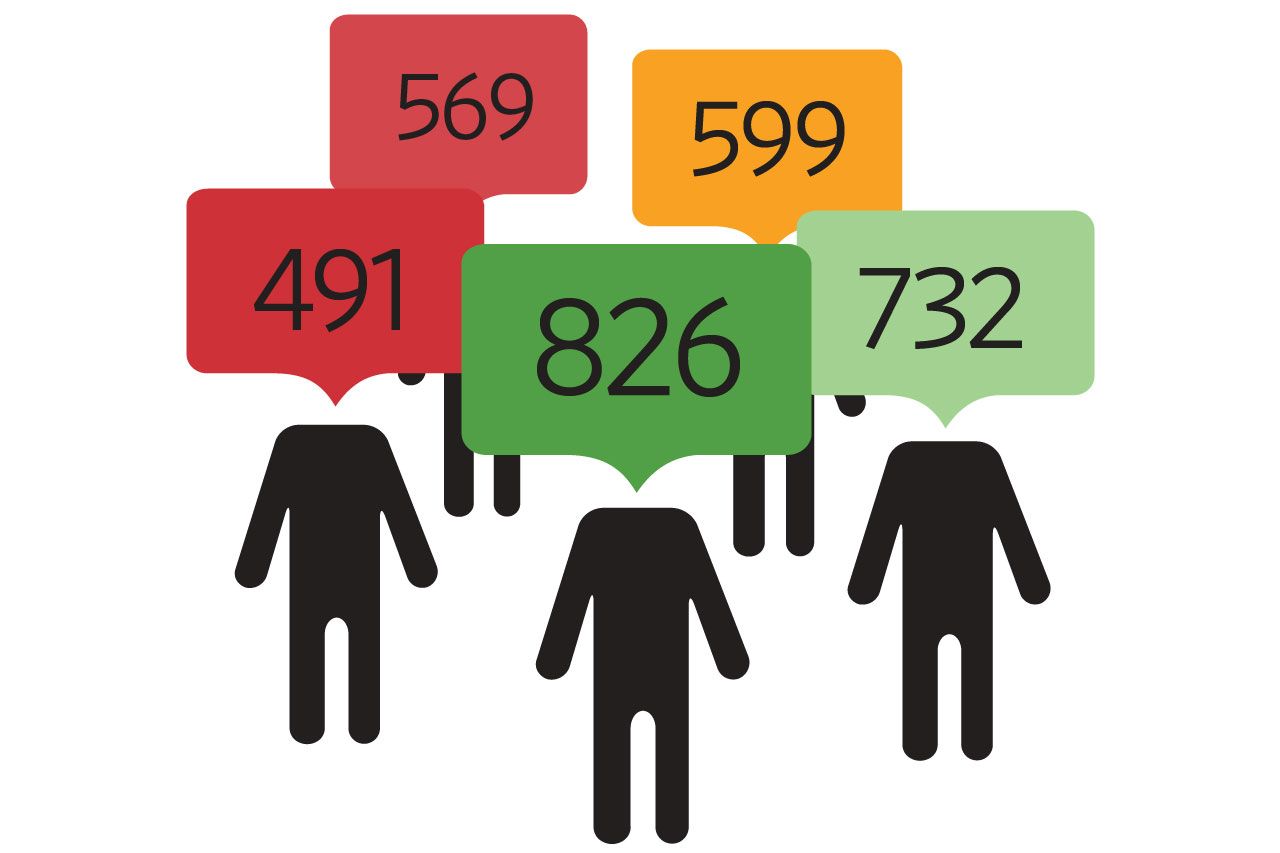Credit Score Tips Given by a Holly Springs Lendor

Your credit score is made up of several things. I’m going to give you ideas, based upon the weighted average of how it will impact your score, of things you can do to improve your credit score. Obviously, my hope is that you will use this information to raise your credit score and buy a house – but the honest truth is that a stronger credit score, can also save you money on credit card interest, and car and health insurance!
IN GENERAL, to have access to the best programs, and the best mortgage rates you should have a credit score of at least 640. Scores below that threshold can qualify for other financing, but there are normally “overlays” meaning you need to show rental history or have some savings in the bank. When your credit scores are under 640, then the Banks are looking for a little bit “extra” security.
Credit Score Tips: Payment History
Obviously, paying your bills on time will impact your credit score. Did you know that the Payment History section of your credit score accounts for 35% of your credit-score pie? This is where all of your derogatory items hang out.
Here’s a question where you might be able to guess the answer…which derogatory account weighs the most: a judgment, collection, bankruptcy, 150-day late, or a tax lien? Well it’s just another trick question because with such limited information, there is no clear answer.
The real answer is that we are looking at the DLA, or Date of Last Activity. We need to know that something “bad” happened, but you’ve moved beyond it.
Think about it this way, the newer the account date (irrelevant to other factors like the type or balance), the more damaging it will be on the credit report.
For example: your $10,000 judgment that is 3 years old weighs less than your Pizza Hut collection that you just paid off from five years ago for $14. This is due to the fact that your Pizza Hut collection DLA has just been renewed. When you paid off Pizza Hut, you added a new date to that item. Sometimes our credit score tip is: you’re better off NOT paying off a collection when it is not going to help the credit score.
The Credit Counselors tell us that if you have a perfect credit score of 850 a single 30-day late can lower your score by 175 points.
Think about it this way; if you were a bank and you had to choose to lend money between one person who had a single 30-day late last month and who, as a result, now has a credit score of 675 versus a different person who went bankrupt 5 years ago who also has a credit score of 675; who would you choose?
Hopefully, you choose the aged, bankrupt client because current risk is much more relevant than any other factor that impacts your credit score. Sure, the client who went late might have had a brain blip and simply forgot to pay a bill… or they could now be in serious trouble; that doubt is where the real problem lies.
The newer the date of the last negative thing on the report, the more weight that item has. Believe it or not when you pay off a collection, that that creates a new date for the activity associated with that collection.
Credit Score Tips: Paying Off Debt
Paying down credit card balances will help raise credit scores, but there’s a best practice strategy to this.
Quiz Question – Which situation is best for your credit score:
- Having one credit card, using it every month, for a tiny amount of $15 then paying it off to $0 immediately after receiving the bill?
- Having three credit cards and using them each month but always keeping them as close to 30% charged as possible? MEANING – it you have a credit card limit of $100 you would never have a balance higher than $30.
- Charging your only credit card to the limit each month, BUT paying it off completely when the bill arrives?
- Rotating three credit cards; keeping only one of them with a balance at 50% utilization at any given time?
- Owning two credit cards and only using them in emergencies?
- Going to the bar and spending all of my money because the FICO credit score algorithms are irritating and continue to cause you to have higher interest rates?
Just in case you decided to look at this line to find the answer before figuring it out; it might be (3), could be (4), possibly (2, perhaps (1), but definitely not (6).
Choosing option (5) is terrible because having revolving accounts and not ever using them is the same as not having any in the first place.
The problem with (4) is that a 50% utilization – though it isn’t awful – is higher than where you want to be. The ideal utilization number is no more than 25%. Rotating your cards monthly, assuming you have multiple cards is important, though. Therefore, (4) takes 2nd place.
Option (3) is one of the worst options only because of how the bureaus/creditors have set up their system. You may think that you’re a financial guru – maxing out your card then having the funds and responsibility to pay it off – but the creditors report you to the bureaus before they send you the bill.
What generally happens, therefore, is that your credit report shows that you are maxed out at any given time instead of paid off.
Option (2) isn’t terrible but certainly not ideal. At a 30% utilization you aren’t losing a lot of points, but you are still losing a few. In addition, if all of your revolving accounts are being utilized at once, you are penalized for “multiple revolving balances.”
The best answer is option (1). Keeping your balance as low as possible on one account always and continuously using it each month is as good as it gets.
We normally suggest that you pay for a tank of gas, and then pay that off each month. There’s also a concept out there that it’s a good idea to pay SOME interest on credit cards each year, so if you pay the balance down to $20, and have a little interest, that’s probably not a bad idea either.
In Summation… it is going to take somewhere close to a 640 middle credit score to buy a home in North Carolina – meaning 2 of your three credit scores should be over 640. We do offer mortgage programs that allow for credit scores under 600, but honestly those loans are VERY hard to do and general take “offsetting factors.”
Have more questions about your credit score situation and how to buy a house? Call Steve Thorne at 919 649 5058 NMLS 60596
Equity Resources, Inc. NMLS 1579, NC L-134393-102
201 Shannon Oaks Circle, Suite 204, Cary NC 27511







